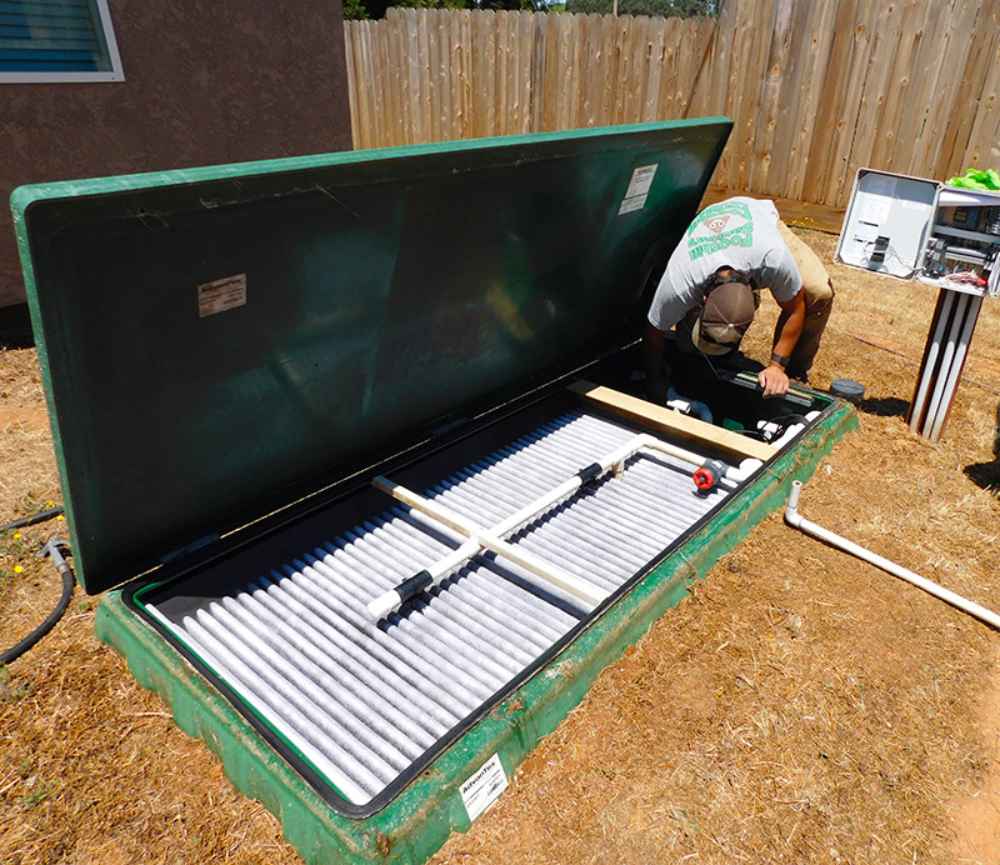To keep your septic system operating flawlessly, a foundational understanding is critical. Comprising a tank separating fluids from solids, a distribution box evenly spreading the liquid, and a drain field where the final treatment occurs, the system is designed for natural and effective wastewater treatment.
Knowing the role of each component helps homeowners gauge their system’s health better and swiftly detect issues before they escalate into major problems. The septic tank acts as the initial holding cell for household waste. Here, substances separate by density, with solids settling at the bottom to form sludge, while the lighter fats rise to the top, creating scum.
Liquids flow into the leach field, filtered through soil layers before safely rejoining the groundwater. Homeowners must recognize that septic tanks do not destroy waste; they separate and contain it, making proper maintenance a recurring necessity.
When the bacterial ecosystem within the tank functions well, it efficiently breaks down organic matter. This decomposition process is crucial, as it helps prevent blockages that could damage the system. However, improper usage, lack of servicing, or the introduction of harmful chemicals can disrupt this biological activity. Homeowners should be vigilant about what enters their septic system and ensure regular assessments are made to keep it in optimal working order.
Proactive Septic System Maintenance
Maintaining a septic system doesn’t end with its installation; it requires continuous vigilance. Homeowners should prioritize efficient water use, as excessive consumption can overwhelm the system, leading to possible failure. Fixing drips and leaks, opting for high-efficiency appliances, and spreading out laundry loads can significantly lessen the strain on the system.
The way homeowners manage waste impacts septic system health. Flushing non-degradable items, like wipes or sanitary products, can create clogs and backups. Even items labeled ‘septic safe’ can sometimes cause issues; thus, the best practice is limiting toilet discharge to human waste and toilet paper. Composting kitchen scraps and adequately disposing of oils and grease can keep the system running cleanly and efficiently.
Adding septic tank maintenance to the home’s routine service schedule is also wise. While several factors, such as household size and tank dimensions, dictate septic pumping frequency, experts generally recommend pumping the tank every three to five years. Foothills septic pumping can avert unpleasant surprises and maintain a smoothly functioning septic system.
Smart Landscaping Around Septic Systems
The landscaping choices homeowners make can considerably affect the health and longevity of their septic systems. It’s advisable to select shallow-rooted plants for areas around the septic tank and drain field to prevent roots from interfering with underground piping.
At the same time, homeowners must be mindful of irrigation systems, ensuring they do not saturate the drain field, which requires oxygen to treat effluent effectively. With various treatments to clean or deodorize the toilet, Foothill portables can aid in septic tank cleaning. Specific treatments can do both. The portable toilet’s fluids may rapidly break down waste.
Heavy objects, including vehicles, sheds, or significant weight, should never be placed atop septic system components. The pressure can compact the soil or damage the tank and piping, leading to a malfunction. Educating residents and visitors about the location of the septic system can go a long way toward avoiding these costly mistakes.
Integrating native, drought-resistant plants into your landscape can add beauty to your property while reducing the need for additional water, which could compromise your septic system. The strategic use of landscaping can act as a protective and visual boundary, ensuring the ongoing proper function of the septic system components beneath.
Addressing Common Septic System Issues
Septic system problems can present themselves in various ways. Slow drains may signify a pipe blockage while gurgling sounds or odors suggest a backup or tank requiring pumping. These indicators are not to be taken lightly; they can denote an urgent need for maintenance or signal a potential health risk through contamination of the surrounding area.
Damp spots or lush vegetation near the drain field are tell-tale signs of potential leaks or overflow. These should prompt immediate investigation, as they can cause further damage to the system and the environment. Vigilance in monitoring your septic system and its area ensures it continues to function correctly.
If basic troubleshooting does not resolve the issue, enlisting a septic specialist’s help is prudent. They have the expertise and specialized equipment to effectively diagnose and remedy the situation. Timely intervention can prevent more extensive and costly problems, ensuring that your septic system remains a reliable aspect of your home’s infrastructure.
Seeking Professional Septic Services
There are aspects of septic system maintenance where the expertise of professionals is indispensable. Specialized tasks like pumping the tank, inspecting system components, and addressing repair needs are best handled by those with experience and the right tools. Homeowners can research and engage reputable service providers who understand the intricacies of septic systems, ensuring all processes comply with environmental and safety standards.
Working with qualified septic service professionals ensures immediate concerns are addressed and provides peace of mind for the future. They can advise on proper system care and may help draft a tailored maintenance schedule. Establishing a working relationship with a reliable specialist can be invaluable for any homeowner.
When selecting a septic service provider, consult the Better Business Bureau or local health departments. Check their credentials, read reviews, and ask for references to ensure you choose a company that stands behind its work and respects its clients’ homes and properties.
Environmental Responsibility and Your Septic System
A well-maintained septic system benefits the environment by treating wastewater naturally and protecting waterways from pollution. Homeowners who neglect their systems risk contaminating local water sources, which affects wildlife, vegetation, and community health. However, this risk can be significantly diminished by acting responsibly and ensuring timely maintenance.
Advancements in septic system technology now focus on eco-friendliness. These systems often include components that reduce nutrient runoff and minimize the ecological footprint. Even simple choices, like using phosphate-free detergents or biodegradable household cleaners, can improve the environmental impact of your household’s waste management practices.
Another way homeowners can contribute is to stay informed about new regulations or products that help make septic systems more environmentally friendly. Advocating for and investing in such technologies benefits individual property owners and supports broader sustainability efforts.
Financial Planning for Septic System Upkeep
Budgeting for septic system maintenance should be part of regular household financial planning. Anticipate the costs of pumping, inspection, and potential repairs. This foresight enables homeowners to deal with necessary servicing without the stress of unexpected expenses. Creating a reserve fund allocated specifically for septic system care can provide an efficient solution to managing these costs.
Considering the cost variables involved in servicing different septic systems, obtaining an estimate from a trusted provider gives homeowners a clearer vision of the expected expenses. Regular maintenance allows systems to last longer, avoiding the need for premature replacements, which can be a significant financial burden.
Ultimately, investing in your septic system is an investment in your property. A well-maintained system ensures the smooth functioning of your home and secures its value, offering a return on investment that is both tangible and intangible.
Proactively protects the septic system and supports a seamless daily life and environmental harmony. In conclusion, maintaining a well-functioning septic system is critical to sustainable homeownership. With careful planning, responsible practices, and professional support, you can ensure your septic system operates efficiently for years.
Embrace the role of a knowledgeable homeowner by following these guidelines and consulting with experts when in doubt. Not only will you safeguard your home’s infrastructure, but you will also protect the natural environment and contribute to the health of your community.



